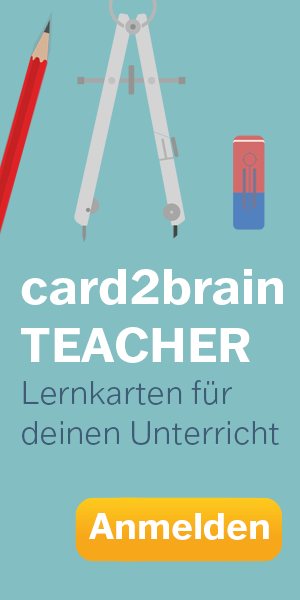Macroeconomics - CH21 Macroeconomics: The Big Picture
Chapter 21 - Macroeconomics: The Big Picture
Chapter 21 - Macroeconomics: The Big Picture
Kartei Details
| Karten | 48 |
|---|---|
| Sprache | English |
| Kategorie | VWL |
| Stufe | Universität |
| Erstellt / Aktualisiert | 03.10.2020 / 23.06.2025 |
| Weblink |
https://card2brain.ch/box/20201003_macroeconomics_ch21_macroeconomics_the_big_picture
|
| Einbinden |
<iframe src="https://card2brain.ch/box/20201003_macroeconomics_ch21_macroeconomics_the_big_picture/embed" width="780" height="150" scrolling="no" frameborder="0"></iframe>
|
Lernkarteien erstellen oder kopieren
Mit einem Upgrade kannst du unlimitiert Lernkarteien erstellen oder kopieren und viele Zusatzfunktionen mehr nutzen.
Melde dich an, um alle Karten zu sehen.
In general we can say that countries with high investment spending relative to savings run __________, whereas countries with low investment spending relative to savings run __________.
How will Ms. Martin's tips change when a large manufacturing plant near the restaurant where she works closes?
What will happen to spending by consumers when the economy enters a downturn?
How will the price of oranges change when a late forst damages Florida's orange groves?
How will wages at a manufacturing plant change when its workforse is unionized?
What will happen to U.S. exports as the dollar becomes less expensive in terms of other currencies?
What is the relationship between a nation's unemployment rate and its inflation rate?
when one person savs more, that person's wealth is increased, meaning that he or she can consume more in the future. But when everyone saves more, everyone's income falls, meaning that everyone must consume less today. Explain this seeming contradiction.
This question concerns the paradox of thrift; what is true for an individual - that saving makes you better off - is not always true for the economy as a whole. When an individual saves, that person adds to his or her wealth, providing for higher consumption in the future. However, if everyone saves, firms will not sell as much and will lay off workers. As unemployment rises, people will have less to spend in the economy and consumption will decline.
Before the Great Depression, the conventional wisdom among economists and policy makers was that the economy is largely self-regulating.
Is this view consistent or inconsistent with Keynesian economics? Explain.
The view that the economy is largely self-regulating is not consistent with Keynesian economics, which claims that managing the economy, via the tools of fiscal and monetary poilcy, is the government's responsibility.
Before the Great Depression, the conventional wisdom among economists and policy makers was that the economy is largely self-regulating.
What effect did the Great Depression have on conventional widsom?
The Great Depression was such a catastrophic occurence that it shifted the conventional widsom away from the view that the economy is largely self-regulating to the Keynesian view that the government should intervene to manage the economy.
Before the Great Depression, the conventional wisdom among economists and policy makers was that the economy is largely self-regulating.
Contrast the response of policy makers during the 2007-2009 recession to the actinos of policy makers during the Great Depressino. What would have been the likely outcome of the 2007-2009 recession if policy makers had responded in the same fashion as policy makers during the Great Depression?
During the recession of 2007-2009, policy makers actively used monetary and fiscal policy to boost the economy. If they had done nothing, as policy makers did during the Great Depressino, it is very likely that the recessino of 2007-2009 owuld have been even longer and deeper.
The accompanying figure illustrates the increasing trade deficit of the United States since 1987. The United States has been consistently and, on the whole, increasingly importing more goods thatn it has been exporting. One of the countries it runs a trade deficit is China. Which of the following statements are valid possible explanations of this fact? Explain.
Explain the term paradox of thrift.
when families and businesses are worried about the possibility of economic hard times, they prepare by cutting their spending. This reduction in spending depresses the economy as consumers spend less and business react by laying off workers. As a result, families and businesses may end up worse off than if they hadn’t tried to act responsibly by cutting their spending.
The paradox of thrift is an attempt by households to increase their savings can cause a recession. But a higher level of savings plays a crucial role in encouraging long-run economic growth.
Should I go to business school or take a job right now?
What determines the salary Google offerts to Cherie Camajo, a new MBA?
What determines the cost to a university or college of offering a new course?
What government policies should be adopted to make it easier for low-income students to attend college?
What determines whether Citibank opens a new office in Shanghai?
How many people are meployed in the economy as a whole this year?
What determines the overall salary levels paid to workers in a given year?
What determines the overall level of prices in the economy as a whole?
What is the growth effect of increased education level on the economy as a whole?
What determines the overall traade in goods, services, and financial assets between the United States and the rest of the world?
According to Keynesian economics...
...economic slumps are caused by inadequate spending, and they can be mitigated by government intervention. After the Great Depression, Keynesian economics provided the rationale for government intervention through monetary policy and fiscal policy to help a depressed economy.
Explain the term monetary policy
Monetary policy is primarily concerned with the management of interest rates and the total supply of money in circulation and is generally carried out by a central bank.
Explain the term fiscal policy
Fiscal policy addresses taxation and government spending, and it is generally determined by government legislation.
__________ focuses on decision making by individuals and firms and the consequences of the decisions made. __________ focuses on the overall behavior of the economy.
-
- 1 / 48
-

